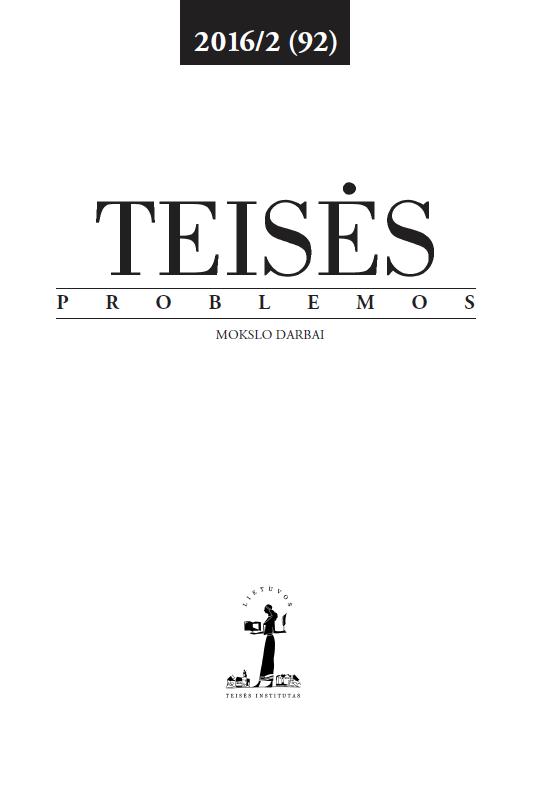Mediacijos įgyvendinimas probacijos tarnybose Lietuvoje
The Implementation of Mediation in Probation Services in Lithuania
Author(s): Renata Giedrytė-Mačiulienė, Judita VenckevičienėSubject(s): Law, Constitution, Jurisprudence
Published by: Lietuvos teisės institutas
Summary/Abstract: In this article, the mediation practice in Lithuanian criminal justice system is analysed. The project “The Implementation of Mediation in Probation Services (MIPT)” (further – MIPT project) which was implemented by Vilnius Regional Probation Service is the first real initiative to establish mediation in Lithuanian criminal justice system. Feasibility of selected mediation model and results of the MIPT project are revealed in this article since the questions are whether it is appropriate to introduce a mediation model in probation services, what are the benefits of mediation from the prospects of both the offender and the victim? This article deals with two aspects: mediation in probation services – is this model meaningful and why it was chosen in Lithuania and what are the results of MIPT project. The legal presumptions for the implementation of mediation in Lithuanian criminal justice system were formulated in laws regulating probation and execution of punishments (the Law of the Republic of Lithuania on Probation and the Code of the Enforcement of Punishments of the Republic of Lithuania). As it is shown in other countries, mediation in probation services can be implemented, however, legal regulations in the Criminal Code and the Code of Criminal Procedure are necessary for mediation to be an important part of criminal process and an alternative for criminal justice. By assessing the results of the MIPT project, benefits were noted for both parties involved in mediation process. During mediation processes the parties had successfully negotiated for compensation, the conflicts arising from domestic violence were solved. Principles, which provide a framework for mediation, determine that parties remain satisfied when they have the opportunity to solve a conflict, propose solutions and express their thoughts and feelings. As the practice of foreign countries shows, the application of mediation at any stage of the criminal process successfully responds to the expectations of the parties.
Journal: Teisės problemos
- Issue Year: 2016
- Issue No: 92 (2)
- Page Range: 69-87
- Page Count: 19
- Language: Lithuanian

